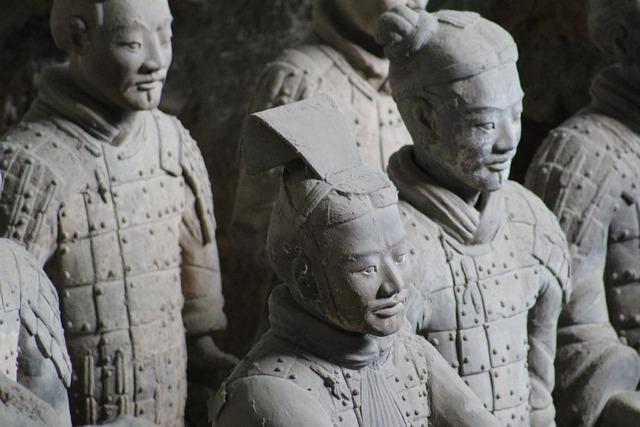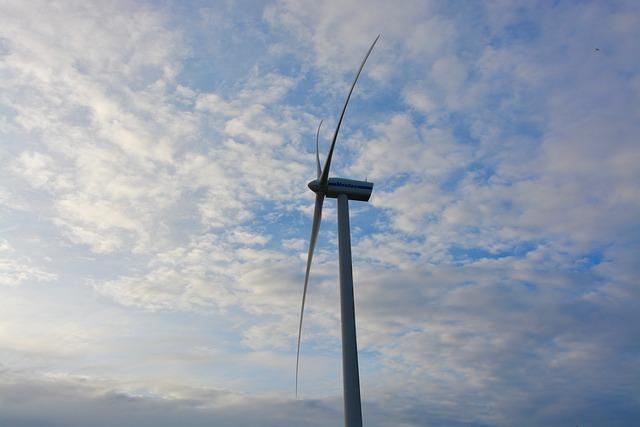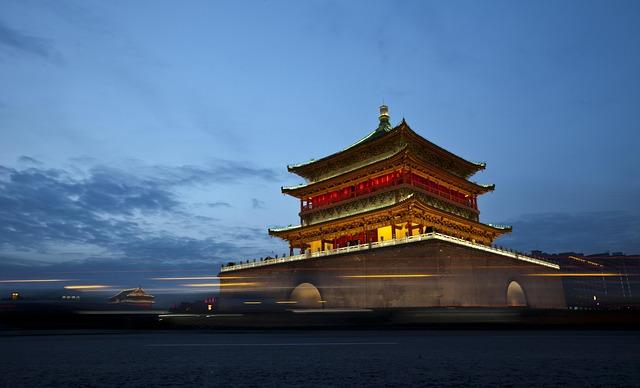In a significant diplomatic engagement, Chinese President xi Jinping held talks with Umaro Sissoco EmbalĂ³, the President of Guinea-Bissau, underscoring the strengthening ties between China and the West African nation. The discussions emphasized mutual interests in enhancing bilateral cooperation across various sectors,including trade,investment,and infrastructure advancement.Set against a backdrop of China’s expanding influence in Africa, this meeting highlights the strategic importance both nations place on their relationship. Through this dialog, Xi and EmbalĂ³ aim to explore new avenues for collaboration, reinforcing commitments to shared development goals and mutual prosperity. As global dynamics continue to shift, the implications of this meeting could reverberate beyond their borders, affecting regional stability and economic progress in Africa.
Xi Jinping and Umaro Sissoco EmbalĂ³ Strengthen Bilateral Ties Amidst Regional Challenges

In a significant diplomatic engagement, Xi Jinping and President Umaro Sissoco EmbalĂ³ convened to enhance cooperation between China and Guinea-Bissau. The discussions centered on pivotal areas such as economic development, trade partnerships, and cultural exchanges, reflecting a shared commitment to mutual growth amidst multiple regional challenges. Xi emphasized the importance of intercontinental solidarity, underscoring that a united front is essential in confronting global issues like climate change and health crises. This partnership aims to leverage China’s vast resources and technological advancements to bolster Guinea-Bissau’s economic landscape, with an emphasis on sustainable development.
Both leaders underscored the need for a strategic framework that would guide their evolving relationship and proposed several joint initiatives.Key points highlighted during the talks include:
- Trade Expansion: Increase bilateral trade volume with a focus on agriculture and technology sectors.
- Infrastructure Projects: Collaborate on key infrastructure projects that enhance connectivity and accessibility.
- Capacity Building: Establish training programs designed to enhance the skills of Guinea-Bissau’s workforce.
- Cultural Exchange Programs: Initiate programs aimed at promoting cultural understanding and cooperation between the nations.
To formalize their commitment, a roadmap for these initiatives was discussed, with a focus on timelines and performance metrics, ensuring that the partnership yields tangible benefits for both nations.
Key Areas of Cooperation Discussed During High-Level Talks

During the recent high-level discussions, President Xi Jinping and President Umaro Sissoco EmbalĂ³ explored several pivotal areas aimed at strengthening bilateral ties between China and Guinea-Bissau. Both leaders expressed a commitment to enhancing collaboration in a variety of sectors, notably:
- Economic Development: Emphasis on investment initiatives that can stimulate growth and create job opportunities within guinea-Bissau.
- Agricultural Cooperation: Joint projects focused on improving agricultural productivity and food security.
- Health Sector Support: Strengthening healthcare systems through technology transfer and capacity-building programs.
- Cultural Exchange: Promoting mutual understanding through educational exchanges and cultural initiatives.
The discussions also featured an agreement to foster collaboration in the digital economy,with both nations recognizing the potential for innovation and technological advancement. A significant point of attention was the establishment of a framework for bilateral trade, which aims to reduce barriers and facilitate smoother exchanges between Chinese and Guinean businesses. The leaders shared a vision for a partnership that not only benefits their respective countries but also contributes to regional stability and prosperity.
Implications of Enhanced Sino-Guinean Relations for West African Stability

The recent talks between Xi Jinping and president Umaro Sissoco EmbalĂ³ mark a significant step toward strengthening ties between China and Guinea-Bissau, with broader implications for regional stability in West africa. As China continues to expand its influence across the continent, partnerships such as this can lead to enhanced economic opportunities in Guinea-Bissau, potentially bringing in vital investments for infrastructure, agriculture, and technology. The expected influx of resources may lead to improved living conditions and bolster local economies, contributing to a more stable socio-economic environment in the region.
though, this evolving relationship carries certain risks that could challenge the existing balance of power in West Africa. Key factors to consider include:
- Geopolitical Shifts: Increased Chinese presence may alter customary alliances and provoke tensions with Western nations pursuing their interests in the region.
- Dependency Concerns: Growth based on Chinese investment might lead to economic dependency, risking local governance and autonomy.
- Cultural Influence: The incorporation of Chinese cultural and political norms could create friction within the diverse ethnic and cultural landscapes of West African nations.
The dynamic interplay of these factors will determine the extent to which enhanced Sino-guinean relations can contribute positively to stability or introduce new complexities in West Africa.
Recommendations for Sustainable Development Initiatives Post-Dialogue

The dialogue between Xi Jinping and President Umaro Sissoco EmbalĂ³ serves as a platform for promoting sustainable development initiatives that are both effective and practical. As the two leaders identified key areas of cooperation, it is indeed essential to translate discussions into actionable strategies. Recommendations for fostering sustainability in Guinea-Bissau may include enhancing agricultural practices through eco-friendly techniques, strengthening education on environmental conservation, and investing in renewable energy sources. These steps will not only promote local economies but will also address global climate challenges.
Further recommendations could involve fostering partnerships with international organizations to secure funding and technical assistance for sustainable projects.Collaborating with local communities to ensure their active participation in development processes will enrich outcomes. Prominent initiatives could encompass:
- sustainable fishing practices that preserve marine biodiversity.
- Reforestation programs aimed at combating deforestation and enhancing carbon capture.
- waste management solutions to promote recycling and reduce pollution.
| action Item | Expected Outcome |
|---|---|
| Implement eco-friendly farming | Increase crop yield & soil health |
| Launch renewable energy projects | Reduce dependency on fossil fuels |
| Promote community education | Empower locals in sustainable practices |
Exploring economic Opportunities: China’s Belt and Road Initiative and Guinea-Bissau’s Infrastructure Needs

During the recent discussions between President Xi Jinping and President Umaro Sissoco EmbalĂ³ of Guinea-Bissau, the potential for significant economic partnerships between china and Guinea-Bissau was highlighted. Central to this dialogue was the Belt and Road Initiative (BRI), a vast infrastructure and economic development project aimed at enhancing trade routes and fostering economic growth across participating nations. For Guinea-Bissau, the alignment with this initiative presents an opportunity to address critical infrastructure deficiencies and catalyze broader economic transformation. Key areas of focus include:
- Road Development: Upgrading existing roads and constructing new transport links to facilitate trade and mobility.
- Energy Infrastructure: Implementing renewable energy projects to ensure sustainable power supply and support industrial growth.
- Port Upgrades: Enhancing the port facilities to boost exports and integrate Guinea-Bissau into global shipping routes.
- Telecommunications Expansion: Improving connectivity to support economic activities and promote digital inclusion.
The partnership under the BRI framework could usher in an era of unprecedented growth for Guinea-Bissau.However, it is essential to engage in meticulous planning and obvious governance to ensure that the benefits are maximized while risks are mitigated. By prioritizing infrastructure development, Guinea-Bissau can unlock its potential as a significant player in the regional economy. Additionally, the collaborative efforts may include investment in human capital through education and vocational training, ensuring that local populations can actively participate in and benefit from these economic advancements. The table below summarizes potential projects that could be realized through this cooperation:
| Project | Description | Expected Outcomes |
|---|---|---|
| Road Network Expansion | Construction and rehabilitation of key roadways across the country | Improved connectivity and reduced transit times |
| Solar Energy Projects | Establishment of solar power plants for renewable energy | Increased energy independence and sustainability |
| Port Modernization | Upgrades to the existing port facilities for larger vessels | Boosted trade capabilities and economic growth |
| Digital Infrastructure | Expansion of internet and telecommunications networks | Enhanced access to details and services |
The Role of Diplomatic Engagement in Addressing Global Issues: A Look at China and Guinea-Bissau’s Collaborative Efforts

In the realm of international relations, the diplomatic dialogue between China and Guinea-Bissau underscores the importance of collaborative efforts in tackling pressing global challenges. During the recent talks between President Xi Jinping and President Umaro Sissoco EmbalĂ³,both leaders emphasized key areas of mutual interest,highlighting their commitment to a partnership based on respect and shared goals. This engagement serves as a platform for addressing vital issues such as:
- Economic Cooperation: Strengthening bilateral trade and investment opportunities.
- Sustainable Development: joint initiatives aimed at tackling climate change and enhancing agricultural productivity.
- Cultural Exchange: Promoting understanding and friendship between the peoples of both nations through educational and cultural programs.
The discussions also reflected on the strategic geopolitical dynamics influencing both nations, particularly in the context of regional stability and collective security. The partnership aims to create a framework for peaceful coexistence and conflict resolution,embodying the principles of mutual respect and win-win cooperation. As an example, the collaborative ventures laid out during the meetings include:
| Collaboration Areas | Proposed Initiatives |
|---|---|
| Infrastructure Development | Investment in transport and energy sectors |
| Healthcare Improvement | Sharing medical technology and resources |
| Trade Facilitation | Reducing tariffs and barriers for mutual trade |
Future Outlook
the recent discussions between Xi Jinping and President Umaro Sissoco EmbalĂ³ mark a significant step in strengthening the diplomatic and economic ties between China and Guinea-Bissau. The talks highlighted mutual interests and the commitment to deepening cooperation in various sectors,including trade,investment,and development.As both nations move forward,this partnership represents not only an opportunity for Guinea-Bissau to enhance its socio-economic landscape but also reflects China’s ongoing strategy to expand its influence in West Africa. Continued dialogue and collaboration between these two leaders will be pivotal in fostering stability and progress in the region. Observers will be keen to see how the outcomes of these talks will materialize in tangible benefits for both countries and their people in the coming months.







